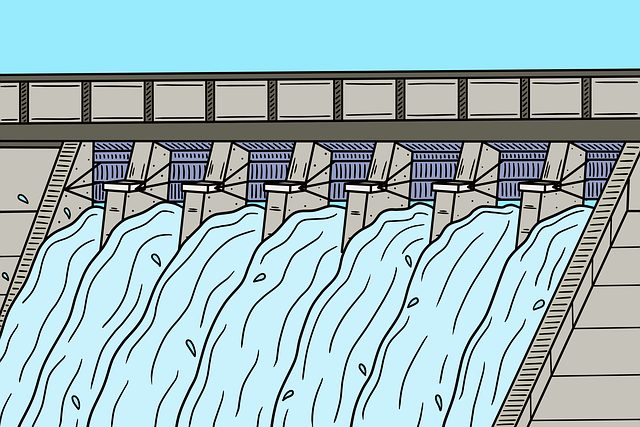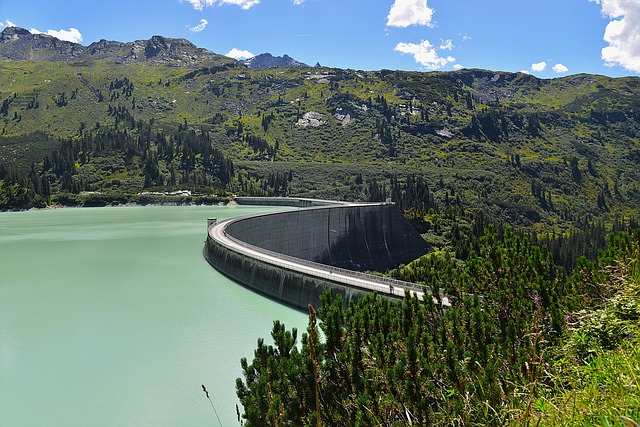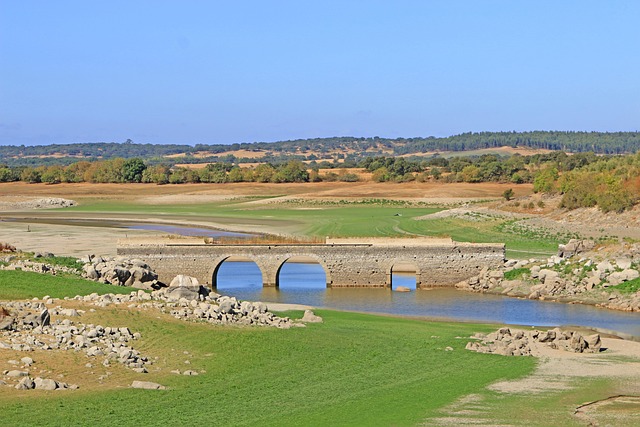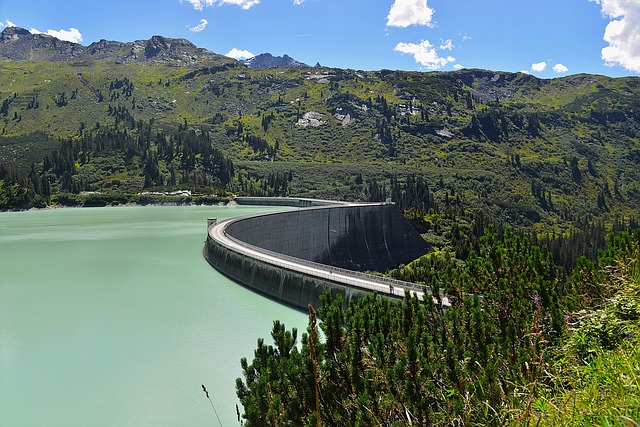Organic farm visits and Hatta Dam activities offer immersive educational experiences for children interested in sustainable living. These hands-on learning opportunities cover agriculture, environmental stewardship, and local organic produce benefits. Students explore vibrant farms, interact with farmers, and understand the entire farming process from planting to harvesting. Hatta Dam highlights water conservation techniques, fostering environmental consciousness. These activities encourage curiosity about food systems, promote critical thinking, and enhance a connection to natural food sources. Local fresh produce tours bring urban dwellers closer to nature, while Hatta Dam serves as an ideal hub for environmental education, offering diverse activities emphasizing sustainable practices and local ecosystem preservation. Such experiences foster healthier dietary choices and support communities valuing fresh, organic produce.
“Uncover the power of organic farm visits as a transformative educational tool in promoting sustainable practices and local food systems. This article explores how immersing students in nature fosters a deeper understanding of agriculture, nutrition, and environmental stewardship. From hands-on experiences at bustling farms to unique settings like Hatta Dam, we delve into engaging activities that enrich learning. Discover the benefits of local fresh produce tours, their impact on children’s awareness, and essential planning tips for educators aiming to bring these trips to life.”
- The Benefits of Organic Farm Visits for Educational Purposes
- Sustainable Agriculture: A Hands-On Approach for Students
- Local Fresh Produce Tours: Bringing the Farm to the City
- Hatta Dam as a Unique Setting for Environmental Learning
- Engaging Activities for an Enriching Farm Experience
- Incorporating Nature into Classroom Lessons
- The Impact of Farm Visits on Children's Nutrition Awareness
- Planning and Organizing Educational Farm Tours
The Benefits of Organic Farm Visits for Educational Purposes

Organic farm visits offer a unique and immersive educational experience, especially for children and those curious about sustainable living. These visits provide an opportunity to learn firsthand about agriculture, environmental stewardship, and the benefits of local, organic produce. Students can explore vibrant, bustling farms, engage with farmers, and discover the entire process—from planting and harvesting to animal care and soil management. It’s a hands-on approach that encourages a deeper understanding of where their food comes from and fosters an appreciation for nature’s tapestry.
Moreover, these visits often include tours focused on sustainable practices, such as water conservation techniques (like those found at Hatta Dam activities) and organic pest control methods. Students can see the real-world application of eco-friendly solutions, which helps to instill environmental consciousness. It encourages critical thinking about food systems and promotes a desire for healthier, more sustainable choices in daily life.
Sustainable Agriculture: A Hands-On Approach for Students

Sustainable agriculture is a practical education tool that offers students an immersive experience in growing and understanding fresh, local produce. By visiting organic farms, students can directly engage with the principles of eco-friendly farming methods. These hands-on activities at places like Hatta Dam let them witness sustainable practices firsthand, from soil conservation to water management. It’s an educational journey that inspires environmental stewardship and fosters a deeper connection to food sources.
Through these farm visits, students learn about organic cultivation techniques, the importance of biodiversity, and how local farming communities contribute to a resilient food system. Engaging in such activities encourages curiosity and critical thinking about food production, making sustainable education both relevant and captivating for young minds.
Local Fresh Produce Tours: Bringing the Farm to the City

Local Fresh Produce Tours offer an engaging way to bring the farm experience directly into urban settings, enhancing sustainable education efforts. These tours provide city dwellers with a unique opportunity to connect with nature and understand the origins of their food. Participants can explore local farms, meet farmers, and learn about organic farming practices while discovering the rich biodiversity that thriving agricultural landscapes offer.
In the context of Hatta Dam activities, these tours become even more meaningful. The lush greenery and scenic beauty surrounding the dam provide an ideal backdrop for educational outings. Visitors can appreciate the contrast between urban life and rural farming practices, fostering a deeper appreciation for sustainability and local food systems. Such experiences encourage a shift towards healthier dietary choices and support the growth of communities that value fresh, organic produce.
Hatta Dam as a Unique Setting for Environmental Learning

Hatta Dam, with its scenic beauty and ecological significance, offers a unique setting for environmental learning. Visitors can engage in various activities that highlight sustainable practices and the importance of preserving local ecosystems. These include guided tours that showcase the dam’s construction, its role in water conservation, and the diverse wildlife habitats it supports.
The natural surroundings provide an excellent opportunity to educate folks about sustainable agriculture and fresh produce cultivation. Local farmers often lead tours, sharing their knowledge on organic farming methods and the benefits of consuming locally grown food. Such experiences not only foster a deeper connection with nature but also inspire participants to adopt more eco-friendly habits in their daily lives.
Engaging Activities for an Enriching Farm Experience

An organic farm visit offers a unique and enriching educational experience, especially for those interested in sustainable living and local food systems. Beyond simply touring fields and learning about organic farming practices, there are various engaging activities that can enhance this trip. For instance, many farms facilitate hands-on experiences like planting seeds, harvesting vegetables, or even interacting with farm animals, making the visit memorable and interactive for all ages.
The Hatta Dam area, known for its scenic beauty, offers a blend of nature and education. Activities such as fresh produce tours allow visitors to learn about local farming techniques while enjoying the fresh air. These tours often include tastings, providing an opportunity to sample the delicious results of sustainable farming practices. Engaging in these activities not only fosters a deeper connection with nature but also encourages a healthier relationship with food and its origin.
Incorporating Nature into Classroom Lessons

Incorporating nature into classroom lessons offers a dynamic and engaging approach to sustainable education, especially through hands-on experiences like organic farm visits. Students can learn about agriculture, ecology, and biodiversity by observing and interacting with the natural environment firsthand. For instance, guided tours of local farms or even visits to nearby parks and gardens can provide valuable insights into sustainable farming practices and the importance of preserving our natural resources.
These outdoor educational activities, including hatta dam activities, encourage curiosity and foster a deeper connection with nature. Teachers can incorporate various lessons such as plant identification, soil science, and wildlife conservation, making learning fun and memorable. By bringing the outdoors inside, or taking students on field trips, educators create a well-rounded learning experience that promotes environmental awareness and a sense of stewardship for our planet.
The Impact of Farm Visits on Children's Nutrition Awareness

Farm visits offer a unique and hands-on learning experience for children, fostering a deeper connection with nature and food. These trips can significantly contribute to enhancing kids’ nutrition awareness, especially in urban areas where direct access to farming is limited. During these visits, children get to witness firsthand how fresh produce is grown, from planting seeds to harvesting vegetables and fruits. This tangible understanding of the farming process allows them to recognize the origin of their food and appreciate the effort that goes into it.
At Hatta Dam activities, for instance, schools often organize trips where students can explore organic farms. They learn about sustainable farming practices, the importance of soil health, and how different crops require specific care. By interacting with farmers and participating in simple tasks like sorting produce or tending to plants, children develop a sense of responsibility towards their food choices. This experience can inspire them to make healthier dietary decisions and understand the environmental impact of their consumption habits.
Planning and Organizing Educational Farm Tours

Planning educational farm tours can be a rewarding experience, offering a unique opportunity for students and communities to connect with sustainable agriculture practices. The first step involves identifying suitable farms that align with your educational goals. Local areas like the Hatta Dam region are ideal, as they provide diverse landscapes and agricultural activities to explore. Contacting nearby organic farms, community gardens, or sustainable farming cooperatives is a great starting point; many of these organizations welcome educational visits and can tailor their tours to specific age groups and interests.
Organizing a successful tour requires careful coordination. Create an itinerary that balances time spent on site with interactive learning activities. This could include demonstrations on organic gardening techniques, animal care, or even cooking sessions using fresh, locally sourced produce. Ensure the tour is age-appropriate and engaging by providing resources like worksheets or quizzes to reinforce what participants learn during their visit. By making these tours accessible and enjoyable, you can foster a deeper appreciation for sustainable farming practices and support local food systems.
Organic farm visits offer a unique educational opportunity, combining sustainable practices with hands-on learning experiences. By engaging in activities like local fresh produce tours and exploring settings like Hatta Dam, students can develop a deeper connection to nature and gain valuable insights into environmental conservation. These immersive experiences not only enhance classroom lessons but also foster nutrition awareness, making them essential for holistic education. Planning these tours effectively ensures a memorable journey that leaves a lasting impact on young minds.
